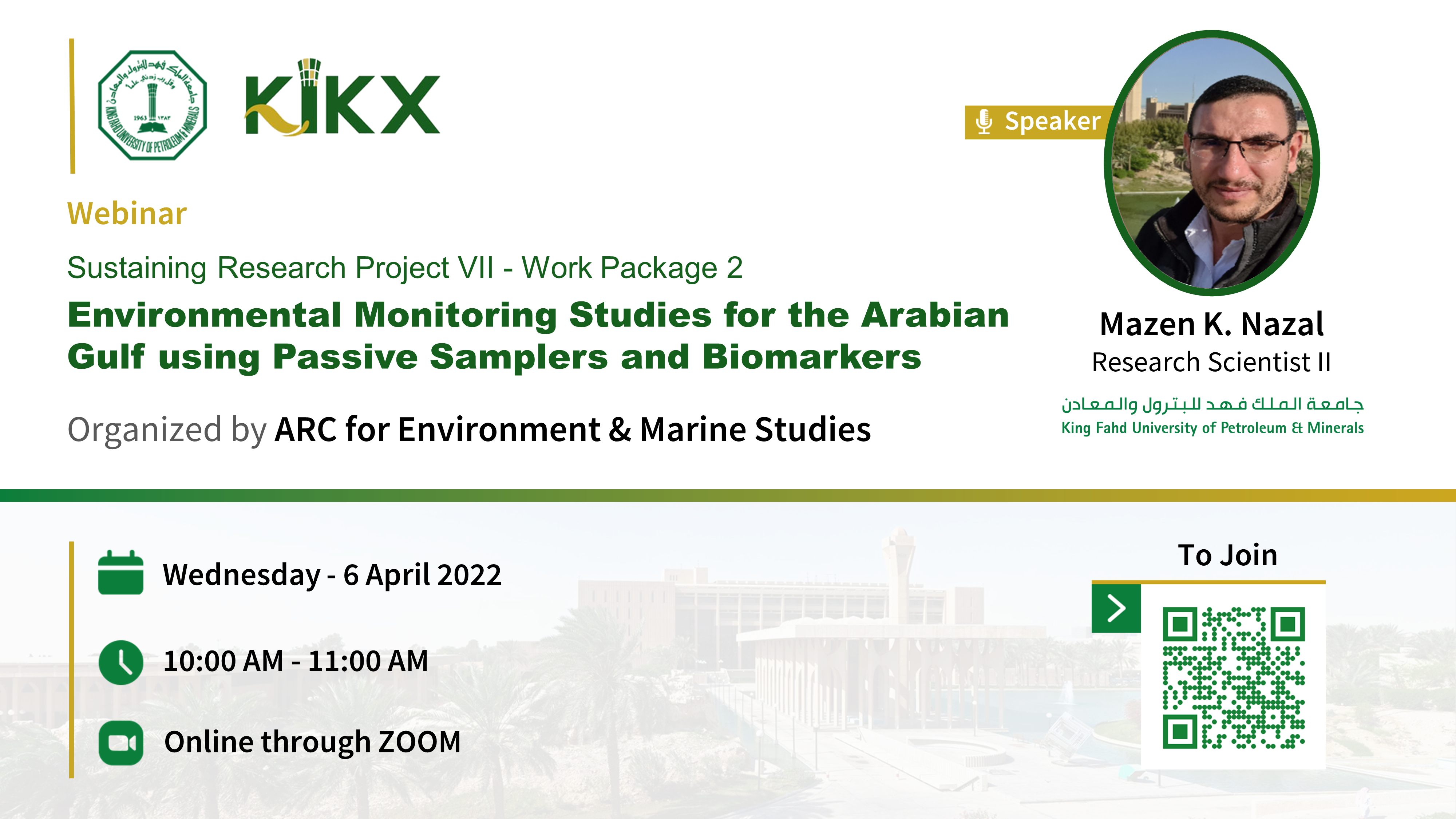Environmental Monitoring Studies for the Arabian Gulf using Passive Samplers and Biomarkers
Organized by: ARC for Environment & Marine Studies
In Work Package 2 of the Sustaining Research Project – Phase VII, passive samplers and biomarkers will be investigated to monitor the status of water quality of Saudi Arabian Gulf water. Contaminants, natural and anthropogenic in origin, are released into the environment and water bodies through a variety of means. Many of these elements and compounds are toxic and bio-accumulative in nature, and can persist for long periods in the environment. ’Spot’ sampling, taking water samples for laboratory analysis at specified times, is the most widely used method for monitoring of contaminants. However, the ‘spot’ water sampling technique has many drawbacks. Primarily, ‘spot’ water sampling provides a ‘snapshot’ of the environment at the time of sampling and may miss point source impacts or seasonal and spatial changes in water composition. As an alternative, passive samplers (PS) are novel that offers the chance to estimate dissolved water concentrations of contaminants at very low concentrations (sub ppb) over long timescales, which can take into account point source impacts and temporal and spatial trends. They are simple to deploy and have been found to be robust in the environment. Extraction and analysis of these devices has also proven to be a straight forward procedure, with the use of performance reference compounds providing in-situ calibration. Finally, the long-term dissolved water concentrations of contaminants provided by PS technology can be used as an important tool in understanding the status of the marine environment. Besides, biomarkers such as metallothionein induction and Comet assay have been received special attention for biomonitoring of ecotoxicological impact of pollutants. By combining passive sampling and biomarkers, an integration of exposure and effects-based monitoring can be attained. This seminar will illustrate the scope of work, and research plan for this Sustaining VII work package.
